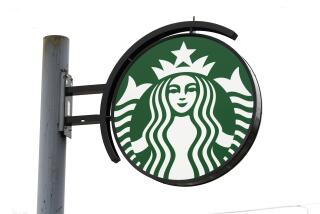Coke Winning Its Way Back Into Arab World
- Share via
MANAMA, Bahrain — A 20-year-old Arab boycott of soft drinks giant Coca-Cola Co. is cracking despite the Arab League’s refusal to remove it from its blacklist of firms who have had dealings with Israel.
A TV advertising campaign has launched Coca-Cola in Bahrain, while bottling and canning plants are opening up in Persian Gulf states.
But the Atlanta-based multinational’s return to the lucrative Arab market, where cola sales are estimated at 5 billion bottles a year, has provoked an angry response from the Arab League’s Israel Boycott Office in Damascus.
“We make decisions, but we do not implement them--Arab governments should do so,” the office’s commissioner general, Zouhair Akil, told Reuters in Damascus. “Our decisions are political decisions, they represent the Arab nation’s decisions.”
Saudi Arabia, with an estimated population of 10 million, would be the jewel in Coca-Cola’s Arab crown.
But the real question is whether the kingdom bucks or backs the Damascus decision, said a Gulf-based industry analyst. Coca-Cola’s main competitor, Pepsi-Cola, has a major share of the lucrative Saudi Arabian market.
Coca-Cola’s drive into Middle East markets flies in the face of June’s Arab summit in Algiers, where heads of state agreed to uphold boycotts as a weapon in the Arab world’s fight against its arch-enemy, Israel.
The Damascus office last week lifted the boycott of 22 companies, but decided to renew the ban on Coca-Cola, saying it provided “economic aid to Israel.”
Carlton Curtis, a Coca-Cola spokesman in Atlanta, said the action by the Arab League in continuing its boycott “is only reaffirming what has been in place for 25 years.”
Coca-Cola was put on the boycott list in 1967 because it had a franchise bottler in Israel. For many years its major rival Pepsico Inc.--not on the blacklist--enjoyed almost unchallenged dominance throughout the Arab world.
But bit by bit Coca-Cola has clawed its way back, gaining a foothold in some north and east African states and breaking into the Gulf last year in the United Arab Emirates and Oman.
A spokesman at Coca-Cola’s Middle East operational headquarters in London said, “Obviously we are disappointed that we are still blacklisted.”
More to Read
Sign up for Essential California
The most important California stories and recommendations in your inbox every morning.
You may occasionally receive promotional content from the Los Angeles Times.













